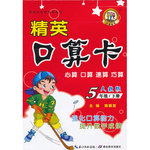题目内容
【题目】假设你是高三学生李华,你所在的学校将举行“行走马拉松(walkathon)”公益活动,为贫困山区的孩子们筹款。请给你的美国朋友Chris写一封信,询问他是否愿意一起参加。内容包括:
1. 介绍活动的相关内容(例如:时间、长度、参加者等);
2. 你对此项活动的看法;
3. 询问对方的意向。
注意:1. 词数 80左右。
2. 可以适当增加细节,以使行文连贯。
___________________________________________________________________________________________________________________________________________________________________________________________________________________________________________________________________________________________________________________________________________________________________________________________________
【答案】Dear Chris,
Our school is going to hold a walkathon to raise money for the kids in poverty-stricken areas. I’m writing
to ask if you would like to participate in it.
The 10 km walkathon, which starts from our school and ends in a nearby village, is scheduled to be held from 1p.m to 4p.m this Sunday afternoon (Dec 15th). All the students will take part. I think this event is of great significance, for it can not only build up our body but help those in need.
Please let me know if you are interested. Hope to meet you at school this Sunday.
Yours,
Li Hua
【解析】
这是一篇应用文写作。
第1步:根据提示可知, 本篇为一封电子邮件;假设你是高三学生李华,你所在的学校将举行“行走马拉松(walkathon)”公益活动,为贫困山区的孩子们筹款。请给你的美国朋友Chris写一封信,询问他是否愿意一起参加。内容包括:1. 介绍活动的相关内容(例如:时间、长度、参加者等);2. 你对此项活动的看法;3. 询问对方的意向。
第2步:根据写作要求, 确定关键词(组), 如:walkathon(步行马拉松);in poverty-stricken areas(贫困山区);would like to(想要);participate in(参与);be scheduled to(预定)等。
第3步:根据提示及关键词(组)进行遣词造句, 注意主谓一致和时态问题。此处文章主要应用一般将来时与一般现在时。
第4步:连句成文, 注意使用恰当的连词进行句子之间的衔接与过渡, 书写一定要规范清晰, 保持整洁美观的卷面是非常重要的。

 精英口算卡系列答案
精英口算卡系列答案